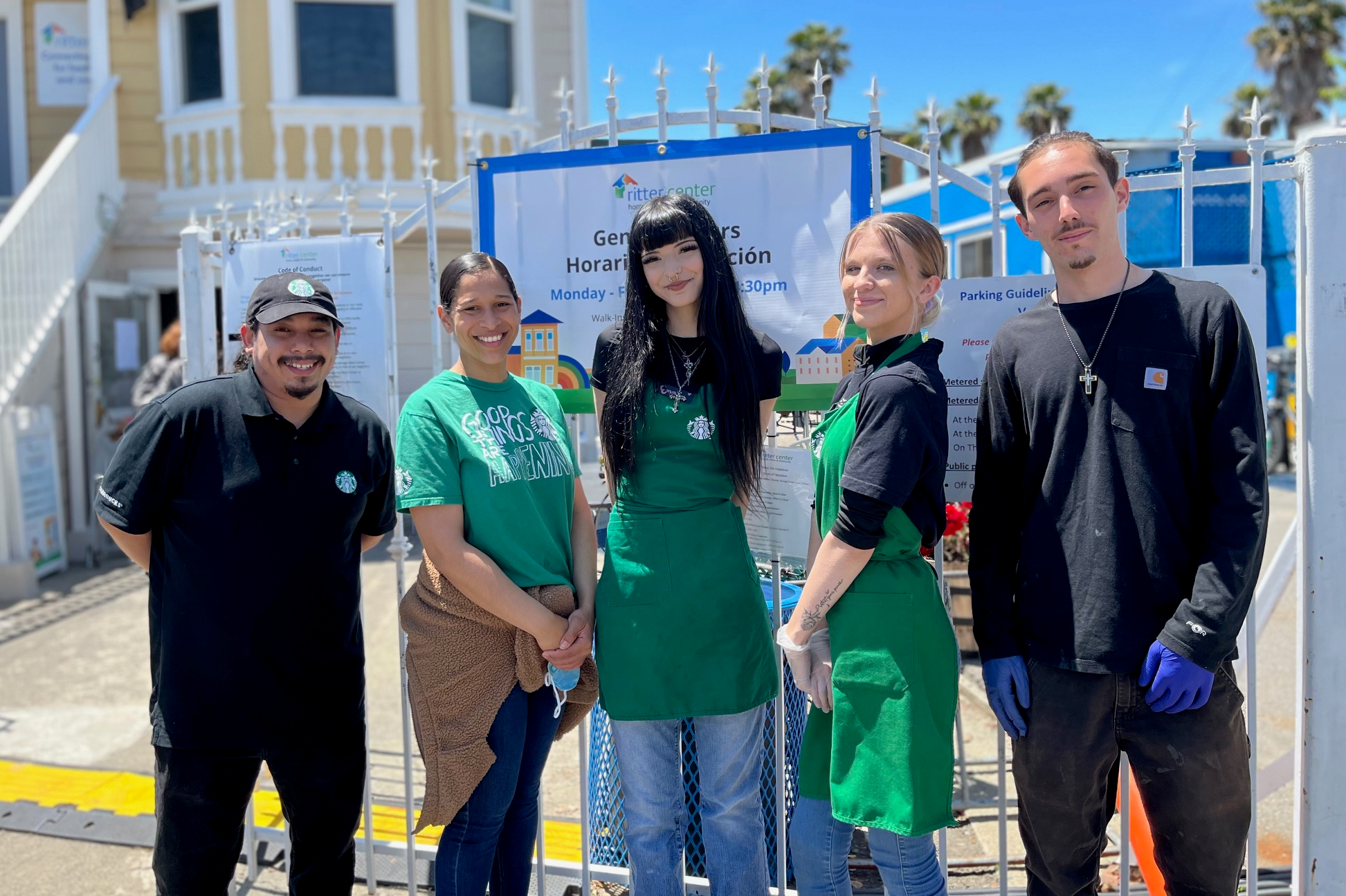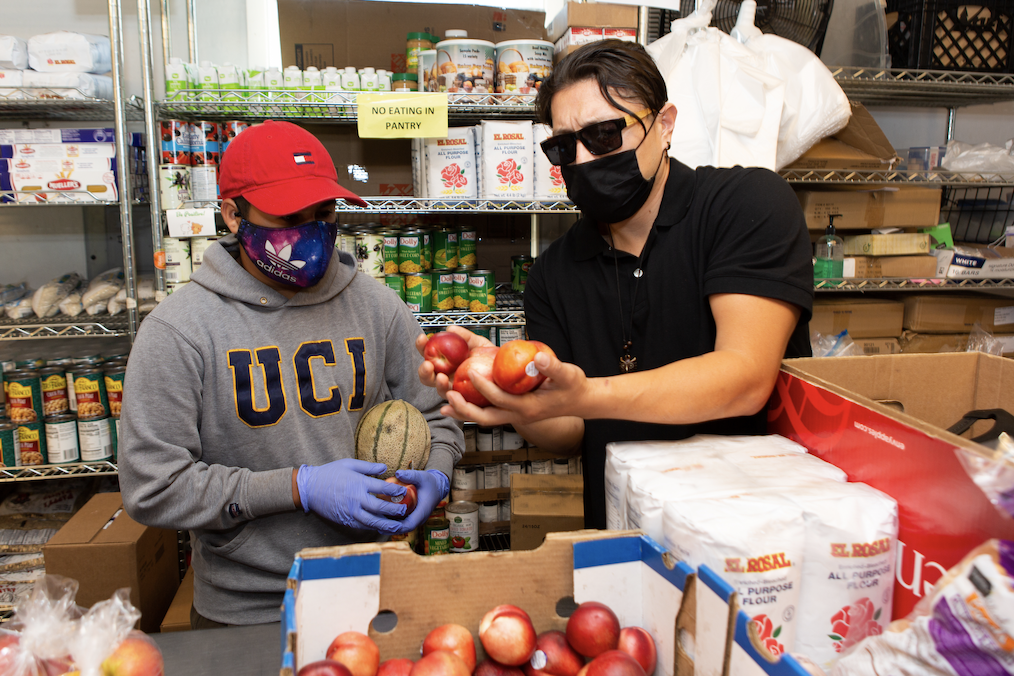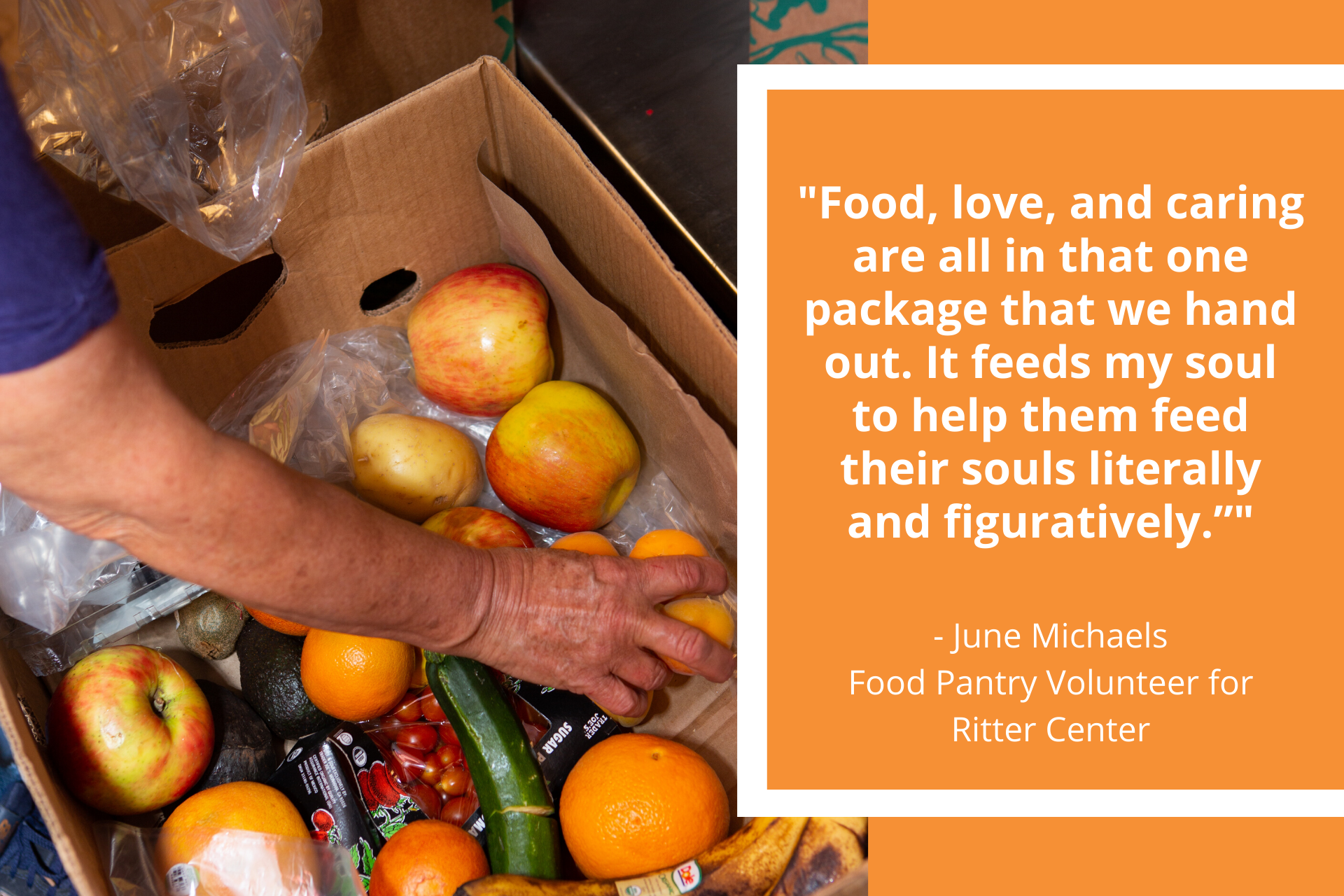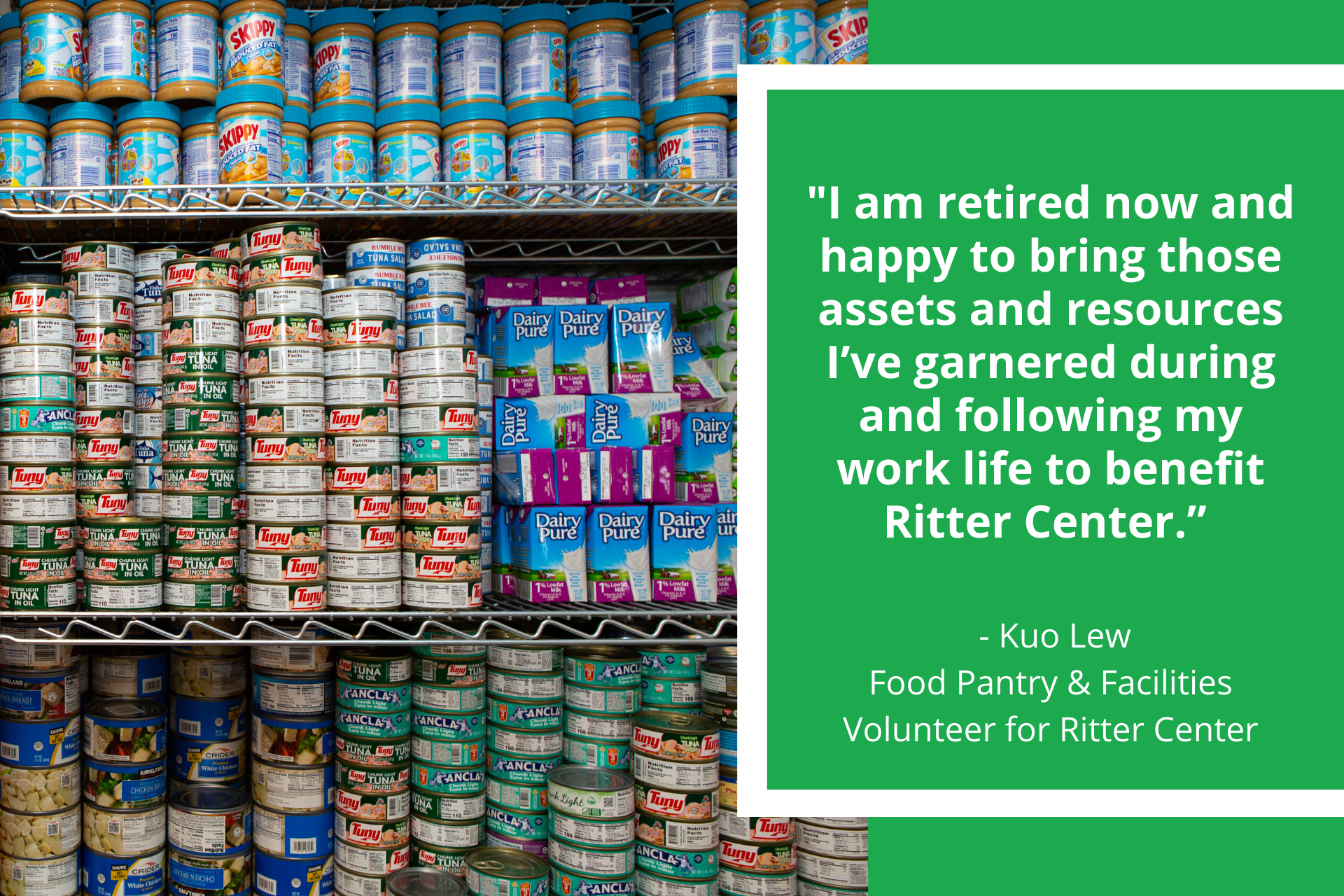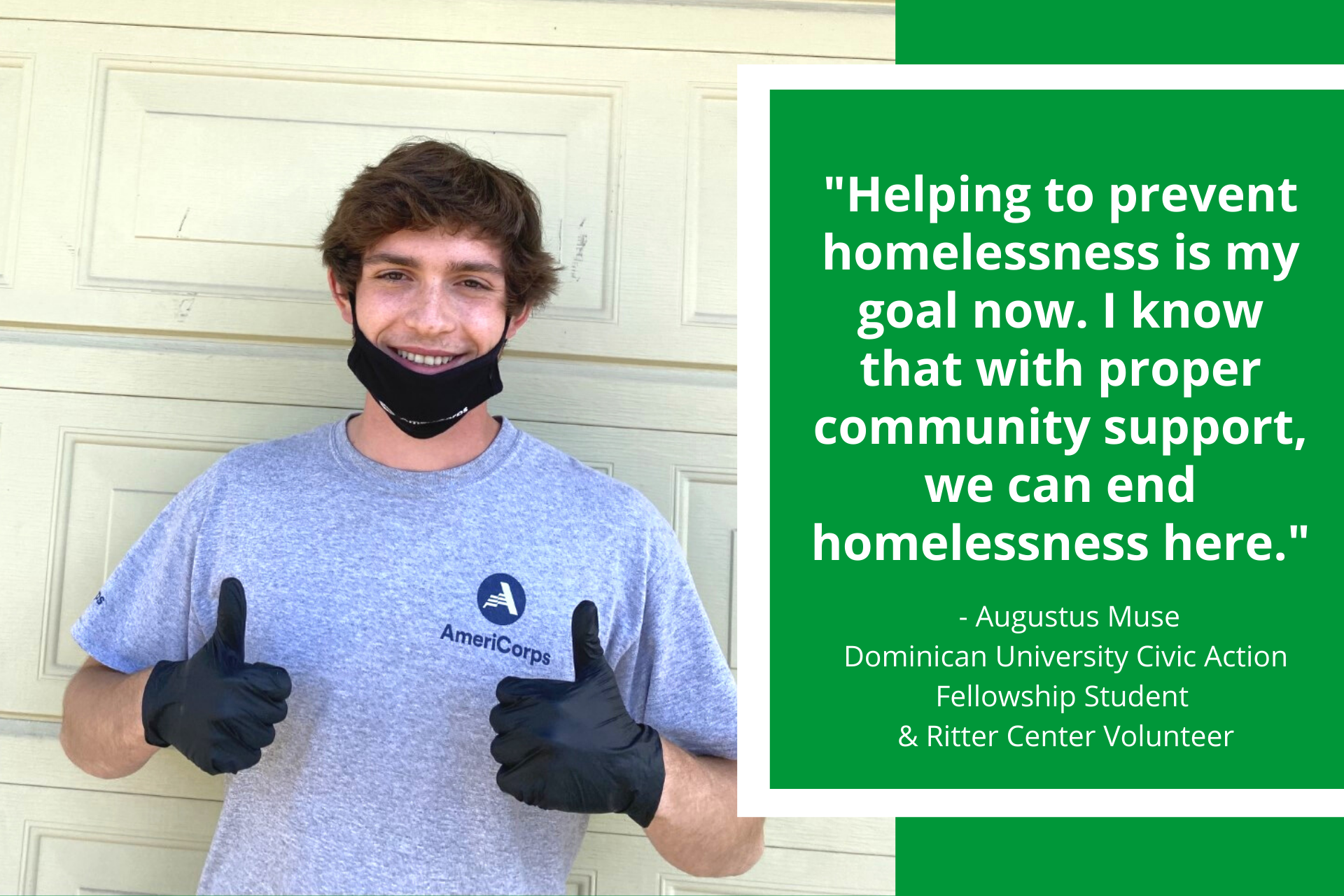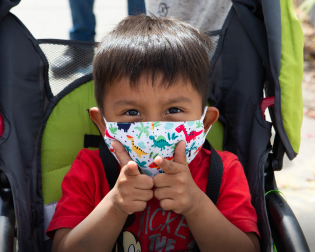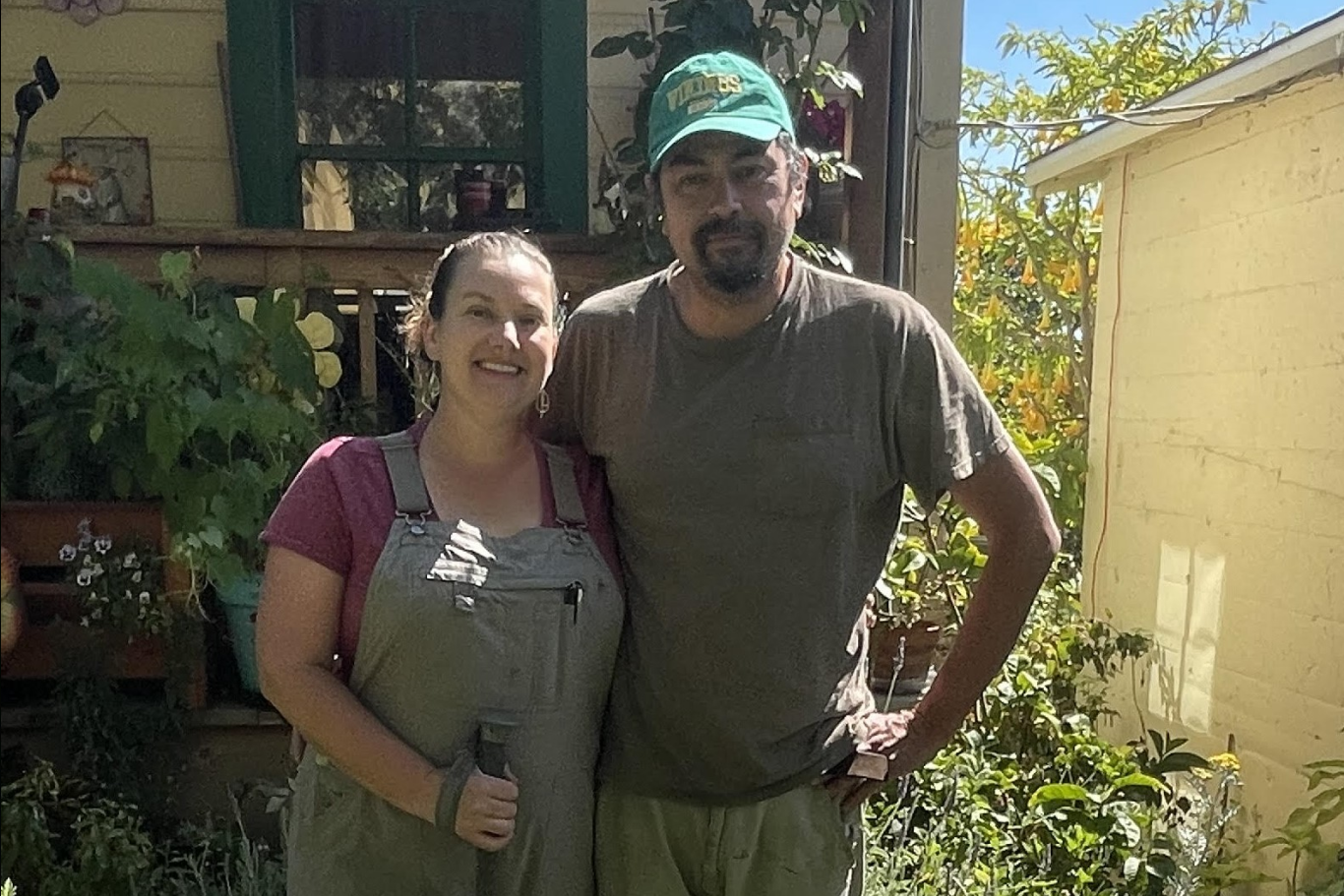
Az’s Story
“I moved away from Marin County for a long time as part of my career pathway, but when I broke my back – everything stopped. This moment ultimately brought me back here to my family, ” recalls Az, a community gardener and volunteer champion. “In fact, my family received a lot of help from Ritter Center when I was growing up. Now that we are able to give back to Ritter Center with these organic vegetable starts and plants, it is a full circle story.”
Az volunteered for Ritter Center’s food pantry in highschool. “Those early experiences receiving help and giving help instilled real core values of working together as a community to lift each other up,” shared Az.
After her accident, Az was in a wheelchair for a long time and couldn’t walk. “My world got very, very small. For me, gardening became a way to learn to live again. Gardening was – and still is – therapy. I started looking at what kinds of vegetables I could grow. It was the feeling of doing something again that brought me so much joy and healing,” emphasized Az
“The idea here is that if you put a little bit into something over time, it can grow into something great. This is just like the work Ritter Center does in our community. Many other people may have felt thrown away, or not good enough or that there is a stigma involved. But you see, we all need a helping hand at some point,” shared Az.
Az started a garden and just like the plants, vegetables, fruits and flowers she planted, everything began to bloom. But not just what was coming from the soil. There was growth happening everywhere, both literally and figuratively.
“The garden works as a community. You need all the pieces: the soil, water, seeds, sun, and the caring. You never know what it can blossom into and my community is an example of that here,” said Az.
“In the past, I couldn’t go past my front gate. I was battling anxiety and depression. But the garden gave me a way of interacting with people through this dark time. I started to grow along with my garden,” remembered Az.
She learned to walk again step by step. The garden also took off slowly, bit by bit. First, there were roses. Then there were herbs and things to eat. The garden went from her tiny porch to her front yard.
She also met Sean who became her life partner. Their relationship began with him building accessible planter boxes for her.
People would stop by as they passed the garden in her front yard and ask her what she was growing, and what it was for – this sparked a conversation that grew into relationships that deepened over time.
Kids walking to and from school would also stop and check out what she was doing. Adults and kids alike were interested in how things were grown, and not just what they look like at the grocery store – but how they ultimately became what they transformed into as something delicious and edible. They started to ask questions. Where does the food we eat come from and look like? What does it look like as a seed and as it grows?
Az and Sean began to do a community pop up every spring with extra plants they propagated from seed. This revealed a chance to bring everyone together to talk about their gardens or their porch spaces, share plant knowledge and queries, and try something new.
“People weren’t talking to each other as much before. These veggie starts became a connection,” said Az. “Fellowship and joy began to sprout.”
“You can still grow something, even if it is in a tiny space. We began to make an effort as a community to keep seed diversity going. By that, I mean things you don’t see in the grocery store. There are so many other things to try to grow and eat beyond what is at the market,” noted Az. “The flavors are fantastic and rare.”
Not unlike the garden, this event took off and grew. People wanted more and more, and this past year was the seventh year which has become a full community event with a bevy of volunteers.
“With the pandemic, we pivoted to the key question – who needs food? Where could these starts go that would help people with food insecurity? We wanted to grow food for the local food bank and lots of different places,” remembered Az.
They donated plant starts for various causes and programs, and also planted lively fall and winter decorations in the front yard as the seasons changed.
“I want to help people find joy in the everyday. In partnership with Good Fairy Marin, we are operating the Leafy Friends program. This started during the pandemic. We were stuck inside. Everyone felt alone and isolated. For community gardens and for group homes that had a garden, we knew we could help, especially with folks who were isolated like seniors and the homebound. Whether it was vegetables or succulents, something to take care of and interact with every day can make a huge difference,” shared Az.
They donated hundreds of plants and Ritter Center is one of those key beneficiaries. Paradise on Picnic is the name pulling from the themes of the love and food that takes root here. They curate whatever starts are best for each organization, and Ritter Center clients can have a plant to join them wherever they call home. The plants also benefited Ritter Center as a small garden area and continue as items to take home, nurture, grow and cook.
The high producing plants are often items clients are already familiar with eating. Growing food and learning how to eat a healthy diet as part of a local food pantry are gifts for life. They are also therapeutic mentally as something beloved to take care of and watch grow.
Thank you Az and Sean for all you do on your mission to propagate wonderful heirloom edibles, cultivate rarities and keep seed diversity thriving through organic practices in our community with fellowship, kindness and education. To learn more about Paradise on Picnic and upcoming events go to www.paradiseonpicnic.com
